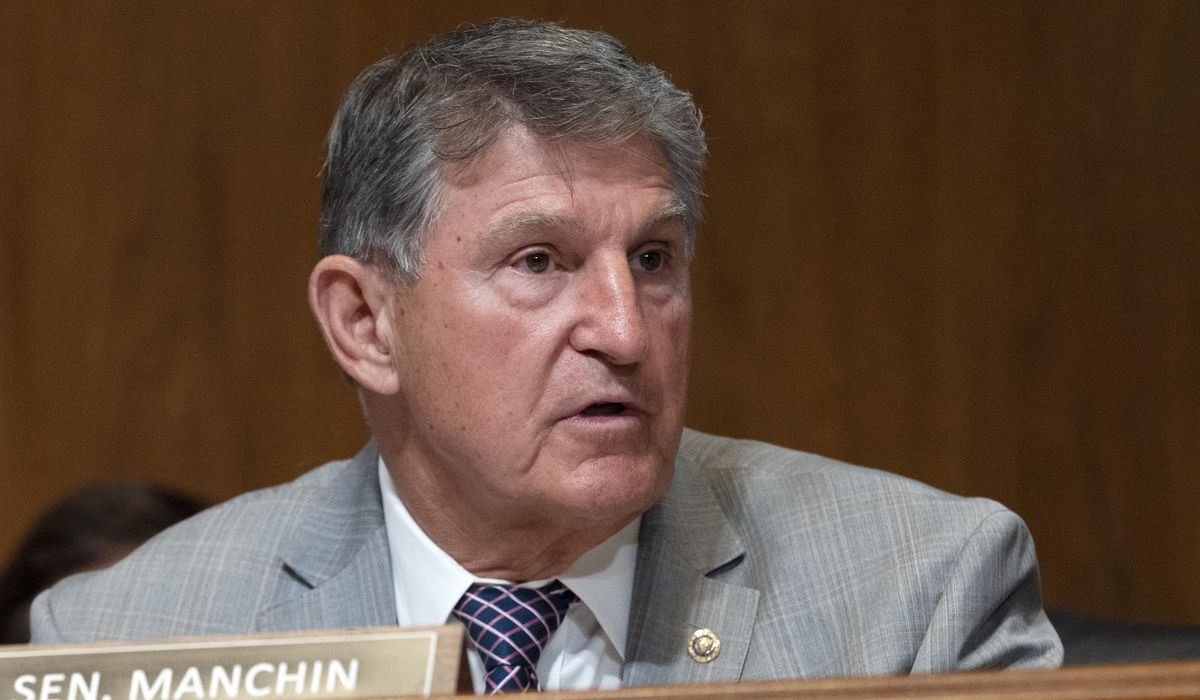


Former Sen. Joe Manchin III said Tuesday the U.S. must find new ways to increase production of rare earths, warning China is consolidating its monopoly on the global market for critical minerals that drive semiconductor and military technologies.
Mr. Manchin, a West Virginian with a mining background, said China is using export controls as a trade weapon, so Congress should speed up permits for domestic mining and work with partners in Canada and other friendly countries.
“Even worse than Europe’s addiction to Russian gas … we are over 90% reliant on China for graphite, gallium, rare earths, over 60% reliant [on] germanium, over 70% reliant for high-grade cobalt and nickel, and I could go on and on,” Mr. Manchin told the House Foreign Affairs Committee.
“China’s critical mineral grip extends around the entire globe,” he said. “They control mines throughout the world, all of which feed the processing and manufacturing powerhouse that they control.”
Mr. Manchin, who served in the Senate from 2010 to 2025, recently joined the board of directors at Ramaco Resources Inc., a leading producer of metallurgical coal and critical minerals.
China produces most of the world’s supply of rare earth minerals used in electric vehicles, weapons systems and semiconductors. The seven rare earths are samarium, gadolinium, terbium, dysprosium, lutetium, scandium and yttrium.
Samarium, in particular, is used in heat-resistant magnets that are critical components of missiles and fighter jets.
“We don’t have the capacity to produce or process every mineral in the quantities that we need here in the United States,” Mr. Manchin said. “The time to solve this issue is now.”
The minerals have become a bargaining chip in trade talks between the U.S. and China.
The American side said Beijing was slow-walking permits to export the minerals to U.S. companies, yet a deal negotiated in London resumed shipments.
China, in return, got relief on tech-export controls and visas for its students attending U.S. colleges.
Rare earths have been in the spotlight throughout the year. Beyond the China spat, Mr. Trump inked a deal with Ukraine for critical minerals in Eastern Europe in exchange for U.S. support in the war against Russia.
Both Republicans and Democrats on the House panel agreed that overreliance on China is a problem.
The U.S. is tapping into rare earth minerals in multiple promising projects, such as MP Materials’ Mountain Pass mining in California and Ramaco Resources’ Brook Mine operation in Wyoming.
Mr. Manchin said the U.S. needs to extract the resources it has and collaborate with other countries to lead the 21st century and ensure its mutual defense.
“You can’t ask other countries to do what you won’t do for yourself,” he said. “If we have a cache of rare earth minerals, we should be able to mine them, we should be able to process and you should be able to manufacture.”
He said companies are going to grab critical minerals from wherever they can, so the U.S. should get into the game through faster permits and deregulation.
“We have so many restrictions and obligations that we put on businesses doing business within our sphere of the free world, that it makes it more difficult and time-consuming and costly,” he said.
Mr. Manchin is a former West Virginia governor who served in the Senate as a Democrat but switched his affiliation to independent at the end of his tenure.
As a senator, he frequently had to balance the interests of his fellow Democrats with those of constituents back home, a coal-focused state that tilted firmly red and heavily supported President Trump during his three presidential bids.
Mr. Manchin decided not to run for reelection in 2024 and flirted with a presidential bid that year.
• Tom Howell Jr. can be reached at thowell@washingtontimes.com.
